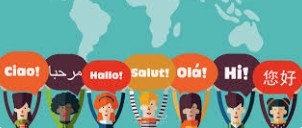الترجمه مقالة عن «المترجم»
تفاصيل العمل
الانجليزيه:
Title: Breaking Barriers: The Power and
Evolution of Translators
Introduction
In our interconnected world, where communication knows no boundaries, the role of translators has become increasingly vital. Translators play a crucial role in bridging language gaps and facilitating effective communication between individuals and cultures. From ancient times to the digital age, translators have been at the forefront of enabling understanding and fostering global cooperation. In this article, we will explore the power and evolution of translators, their significance in today's world, and the challenges and opportunities they face.
Historical Significance
The art of translation has a long and storied history, dating back to ancient civilizations. From the translation of religious texts in ancient Egypt to the renowned translators of classical Greek and Roman works, translators have shaped the dissemination of knowledge and ideas throughout history. Without their efforts, valuable works of literature, scientific discoveries, and philosophical ideas might have remained confined to their original languages, limiting their impact on humanity.
Evolution of Translation Technology
While translators were initially dependent on their linguistic skills and knowledge, advancements in technology have revolutionized the translation landscape. The advent of computers and the development of machine translation systems have significantly impacted the way translations are performed. Computer-assisted translation tools and machine learning algorithms have enabled translators to work more efficiently, increasing productivity and accuracy. However, despite the rapid progress of machine translation, human translators remain indispensable due to their nuanced understanding of language, cultural context, and the ability to adapt to the intricacies of human communication
العربيه:العنوان: كسر الحواجز: قوة المترجمين وتطورهم
مقدمة
في عالمنا المترابط ، حيث لا يعرف التواصل حدودًا ، أصبح دور المترجمين حيويًا بشكل متزايد. يلعب المترجمون دورًا مهمًا في سد الفجوات اللغوية وتسهيل التواصل الفعال بين الأفراد والثقافات. من العصور القديمة إلى العصر الرقمي ، كان المترجمون في طليعة تمكين التفاهم وتعزيز التعاون العالمي. في هذه المقالة ، سوف نستكشف قوة المترجمين وتطورهم ، وأهميتهم في عالم اليوم ، والتحديات والفرص التي يواجهونها.
دلالة تاريخية
يعود تاريخ فن الترجمة إلى الحضارات القديمة. من ترجمة النصوص الدينية في مصر القديمة إلى المترجمين المشهورين للأعمال اليونانية والرومانية الكلاسيكية ، شكل المترجمون نشر المعرفة والأفكار عبر التاريخ. بدون جهودهم ، ربما ظلت الأعمال الأدبية القيمة والاكتشافات العلمية والأفكار الفلسفية محصورة في لغاتهم الأصلية ، مما يحد من تأثيرها على الإنسانية.
تطور تقنية الترجمة
بينما كان المترجمون يعتمدون في البداية على مهاراتهم ومعرفتهم اللغوية ، فإن التقدم التكنولوجي أحدث ثورة في مجال الترجمة. لقد أثر ظهور أجهزة الكمبيوتر وتطوير أنظمة الترجمة الآلية بشكل كبير على طريقة تنفيذ الترجمات. مكنت أدوات الترجمة بمساعدة الكمبيوتر وخوارزميات التعلم الآلي المترجمين من العمل بكفاءة أكبر ، وزيادة الإنتاجية والدقة. ومع ذلك ، على الرغم من التقدم السريع في الترجمة الآلية ، لا يزال المترجمون البشريون لا غنى عنهم بسبب فهمهم الدقيق للغة والسياق الثقافي والقدرة على التكيف مع تعقيدات التواصل البشري
بطاقة العمل
| اسم المستقل | Mosstafa R. |
| عدد الإعجابات | 0 |
| عدد المشاهدات | 19 |
| تاريخ الإضافة |
